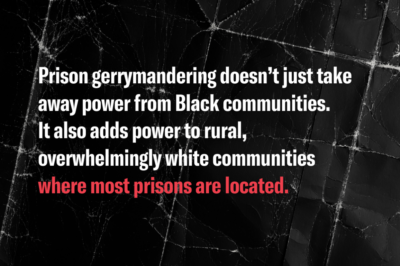ACLU of Utah to Represent Independent Candidate for Governor in Supreme Court Elections Case
FOR IMMEDIATE RELEASE
CONTACT: media@aclu.org
SALT LAKE CITY, UT – The American Civil Liberties Union of Utah Foundation, Inc. (ACLU of Utah) and cooperating attorney Brent V. Manning today filed with the Utah Supreme Court a notice that they will represent Farley Anderson, an independent candidate for governor whose petition to be placed on the ballot was wrongfully rejected by the Lieutenant Governor in March 2010.
Mr. Anderson seeks a ruling from the Court that “e-signatures”—signatures collected on-line—should be treated the same as handwritten signatures for purposes of independent candidate nominating petitions. Mr. Anderson also seeks a ruling from the Supreme Court on the constitutional right of independent political candidates to fair and equal access to the general election ballot. Oral argument is scheduled for June 2, 2010.
“This case raises significant issues of statutory and constitutional law that impact every voter in the State of Utah,” said ACLU of Utah Executive Director Karen McCreary. “We are proud to represent Mr. Anderson in his effort to ensure that independent, non-party candidates are treated fairly by the State.”
On March 18, 2010, Mr. Anderson presented to the Lieutenant Governor a nominating petition signed by over 1,000 Utah voters, as is required by the Election Law for independent candidates wishing to run for statewide office. The Lieutenant Governor rejected Mr. Anderson’s petition because a small portion of the signatures were “e-signatures.” The Lieutenant Governor argued that those were not “signatures” under Utah State law.
Prior to submitting his nominating petition, however, Mr. Anderson asked the relevant County Clerks to certify each signature on his nominating petition. The duty to certify voter signatures is expressly delegated under the Election Law to the Clerks of the various counties in Utah. Four County Clerks—including those in Salt Lake and Washington Counties—certified as valid “e-signatures” submitted by Mr. Anderson. If those certified “e-signatures” had been counted by the Lieutenant Governor, Mr. Anderson would have had well above the 1,000 signatures necessary for inclusion on the ballot.
“The issues here are simple,” said ACLU cooperating attorney Brent V. Manning. “Since the earliest days of the common law, a ‘signature’ was any mark that the signing individual intended to be his ‘signature.’ That was true whether the mark was on paper, on wood, on a wall, or on a cow. For the Lieutenant Governor to carve out ‘e-signatures’ as somehow less worthy of recognition than any other ‘signature’ contradicts the established law of this State. Utah law provides that a signature ‘may not be denied legal effect or enforceability solely because it is in electronic form.’ The Lieutenant Governor has violated state law in imposing additional requirements for signatures submitted by unaffiliated candidates.”
“The State also requires unaffiliated candidates to submit petitions far in advance of the time when major party candidates must be certified for the November ballot,” noted Ms. McCreary. “The imposition of onerous and unfair requirements for independent, non-party candidates for office unconstitutionally excludes from the electoral process unaffiliated candidates and those voters who would support them.”
The group Utahns for Ethical Government (UEG) plans to seek permission from the Utah Supreme Court to submit an amicus curiae, or “friend of the Court,” brief in support of Mr. Anderson. UEG has until August 12, 2010, to collect the 95,000 signatures required to place their ballot initiative on the 2012 ballot. A Supreme Court ruling on the validity of “e-signatures” could play a significant role in whether UEG can meet its August deadline.
Utah law requires that the courts read broadly the requirements for independent candidates to access the ballot. “Those requirements include the signature collection process, including in this case the collection and submission of ‘e-signatures’,” said Mr. Manning.
For more information about the ACLU of Utah, and it’s current work in the area of participatory democracy, please visit www.acluutah.org.
Stay Informed
Every month, you'll receive regular roundups of the most important civil rights and civil liberties developments. Remember: a well-informed citizenry is the best defense against tyranny.



